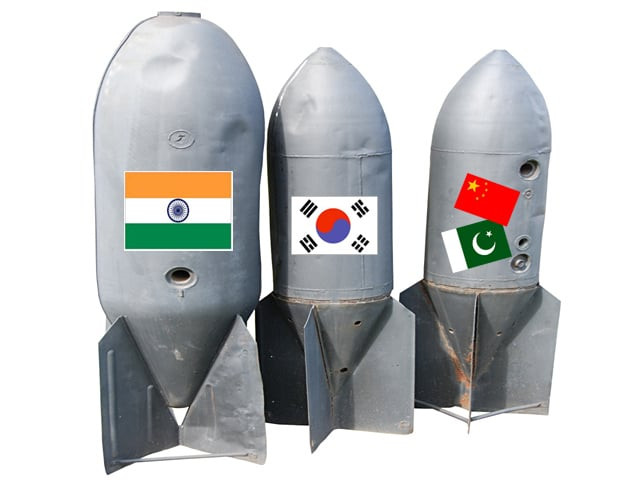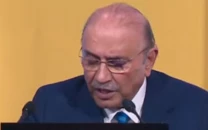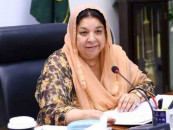India’s nuclear policy shift could intensify SA arms race
Experts warn NFU reversal due to technology acquired over the years

The arms race (2007-2011) is firmly centered in Asia. DESIGN: JAHANZAIB HAQUE
This was warned by experts during a roundtable discussion on the recent hints dropped by the Indian civil and defence leaderships regarding their nuclear policy. The roundtable had been organised by the Centre for International Strategic Studies (CISS).
"India's apparent shift in its NFU flows from the military technologies that it has acquired and developed over the past two decades," suggested CISS Senior Research Fellow Dr Mansoor Ahmed.
He pointed to recent comments from Indian Defense Minister Rajnath Singh during his visit to Pokhran on the death anniversary of former Indian prime minister AB Vajpayee on August 16 where he said, "Till today, our nuclear policy is 'no first use'. What happens in the future depends on the circumstances."
Dr Ahmed believed that the Indian defence minister's statement reflects his government's confidence in the new capabilities which are geared towards a dominance strategy tailored for a full spectrum conflict involving Pakistan and China.
India makes veiled threat of nuclear war
The senior research fellow warned that these developments could incentivise greater investments in conventional and strategic force modernization in the region. One cascade effect of this could be the further development of nuclear warheads and even delivery systems.
"India feels that now is an opportune time to maximise the leverage that it derives from its increasing diplomatic and economic influence at the global stage," he maintained.
CISS Executive Director Ali Sarwar Naqvi recapped the shifts in India's NFU Declaration ever since the draft nuclear doctrine was unveiled in 1999. In the first instance, he said that a caveat had been added in the policy in 2003 which stated that India could resort to the use nuclear weapons in the event chemical or biological weapons are used against either its soil or forces anywhere.
Later in 2010, Naqvi said, then Indian National Security Adviser Shivshankar Menon in a speech had rephrased NFU to 'no first use against non-nuclear weapon states' — essentially changing tact for nuclear-armed countries such as Pakistan and China.
Then, Naqvi recalled, in 2013 the convener of India's National Security Advisory Board Shyam Saran said that India would retaliate massively irrespective of the size of any nuclear attack against it, essentially outlining second-strike capabilities.
Alarming arms race among Pakistan, India and China
"Such doctrinal developments are alarming for India's main adversaries, especially Pakistan, which would be compelled to take counteractive measures and increase the sufficiency level [of nuclear weapons] to ensure the credibility of its deterrence posture," he observed.
CISS Senior Research Fellow Brig (Retd) Dr Naeem Salik noted that the Indian defence minister's statement should not come as a surprise for Pakistan. He went on to explain that Pakistan has never believed in India's NFU declaration.
To support his view, he recalled that multiple Indian leaders and officials have in the past talked about abandoning the NFU.
The presentations were followed by an intense discussion by senior academics and retired diplomats and former military officers on India's nuclear policy and developments.
Published in The Express Tribune, August 27th, 2019.



















COMMENTS
Comments are moderated and generally will be posted if they are on-topic and not abusive.
For more information, please see our Comments FAQ